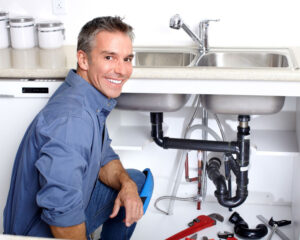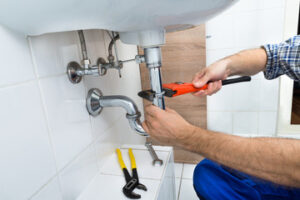Plumbers are professionals that specialize in a variety of services. These services include installing potable water systems and maintaining sewage systems. Some plumbers also perform maintenance on plumbing and other water-related products.
Plumbing contractors are specialized professionals who install, repair and maintain pipe systems, water heaters, and other plumbing equipment. These professionals may be hired to do a variety of jobs, ranging from small to major remodels.
Plumbers may work independently or as part of a team of licensed professionals. They have the technical skills and knowledge to install, repair, and maintain plumbing systems and will often act as consultants during the planning stages of a home build or remodeling project.
Plumbing contractors must have current insurance and bonding documentation. They also must be licensed to operate in their area. If they do business outside of their locality, they will likely need a foreign qualification. Some states have reciprocity agreements in place with other states.
In addition to having insurance and bond documents, plumbers must have a license to perform even the smallest and most minor of plumbing tasks. For example, they must be able to read blueprints, inspect the job site, and make small welding changes.
Plumbing contractors are typically self-employed. However, some will be employees of larger plumbing companies. Larger plumbing companies will send technicians in marked vehicles, assemble the tools needed for the job, and deduct a deposit from the total cost of the job when it is finished.
Plumbing contractors should be able to demonstrate an understanding of the best practices in their industry. For example, they should be able to install a backflow prevention system and maintain water supply and drainage systems. Moreover, they should be able to troubleshoot a clogged drain or a frozen septic tank.
The plumbing industry is complex. This is especially true for the commercial and industrial sectors. Plumbing contractors have to keep up with the latest products and technologies to be able to provide quality service.
Plumbing contractors should be able to display a strong knowledge of plumbing materials, including piping, fittings, fixtures, and appliances. They should be able to work in tight spaces, understand the building codes and regulations in their area, and know the proper procedures for handling a clogged drain or a broken septic tank.
Maintenance plumbers are hired to perform scheduled maintenance and repairs on a wide variety of plumbing systems. They use specialized knowledge and skills to work with water, gas, and steam pipes. Plumbers inspect and test these systems to make sure they are in good working order.
Plumbers can help homeowners with a number of plumbing problems, including clogged drains and leaks. They can also install water and gas supply lines. Plumbing problems can be costly, so it’s important to take care of them in a timely manner.
Plumbers are in demand, especially in times of emergencies. They can also help to keep a home’s plumbing system in good condition, which can prevent many issues. The key is to check all of your appliances on a regular basis and to contact a professional if you notice anything that seems out of place.
Depending on your experience and qualifications, a maintenance plumber’s salary can range from $39,000 to $78,000. Some plumbers even offer service agreements to customers, meaning they’ll make repairs for you if you encounter a problem.
A Maintenance A plumber usually works for a plumbing firm that specializes in this type of work. Some companies will offer their employees an apprenticeship program, allowing them to learn the skills needed to become plumbers.
Some of the tasks a plumber performs include installing plumbing fixtures and fittings, repairing and installing water and gas supply lines, and assembling and cutting pipes. They can also install and repair sanitation units and garbage disposals.
Experienced plumbers are customer-focused and strive to provide the best possible service. However, they must be prepared for challenging physical labor. Plumbers often work long hours on weekends, and they must be able to handle heavy objects.
Maintaining a plumbing system can save a homeowner hundreds of dollars in water bills. If a leak is found, a plumber can repair it quickly to avoid expensive repairs. Other problems, such as clogged drains, can be prevented by having a mesh drain cover installed.
A maintenance plumber has to be knowledgeable about the industry, which means they need to earn a high school diploma. They should also complete an apprenticeship and obtain a certification, such as CPC32413, “Certificate III in Plumbing.”


 Sagging roofs can be a real threat. They can cause structural damage and even collapse. This can be a very dangerous and costly situation. You can get a professional to inspect your home for signs of sagging. However, you might want to check for a few signs yourself first. The best way to identify a sagging roof is to look for a sagging area on the flat portion of the roof. Look for areas with a dip, bowing, or humps. If you notice these, then you may have a sagging problem.
Sagging roofs can be a real threat. They can cause structural damage and even collapse. This can be a very dangerous and costly situation. You can get a professional to inspect your home for signs of sagging. However, you might want to check for a few signs yourself first. The best way to identify a sagging roof is to look for a sagging area on the flat portion of the roof. Look for areas with a dip, bowing, or humps. If you notice these, then you may have a sagging problem. When doing roof leak repair, finding the source of the leak is a good start. Roofing contractors
When doing roof leak repair, finding the source of the leak is a good start. Roofing contractors 